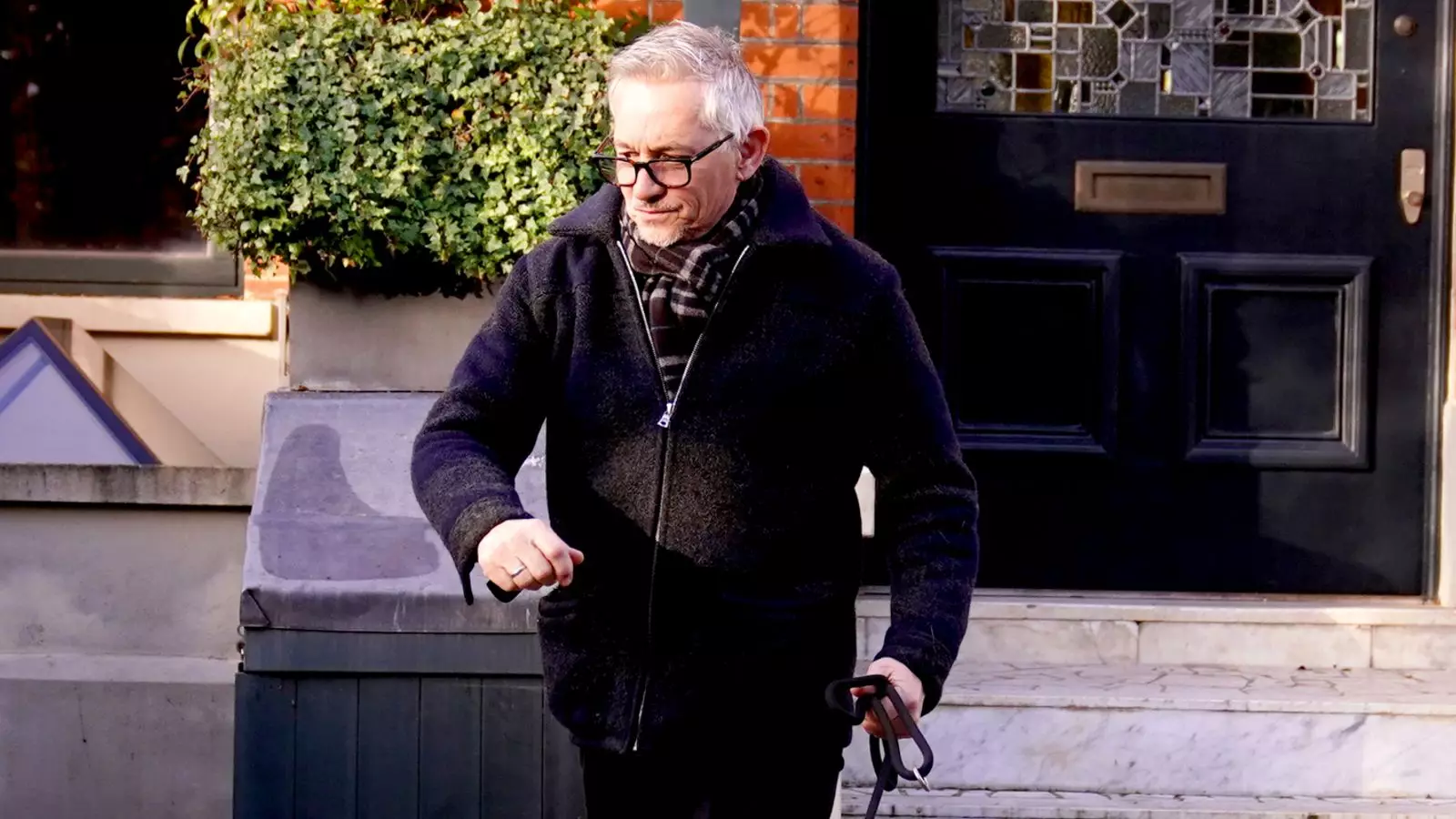Gary Lineker, a name synonymous with both football excellence and broadcasting prowess, is set to conclude his illustrious role as the host of BBC’s flagship football highlights program, Match Of The Day (MOTD), this season. The announcement, made by the BBC, signifies a monumental shift in the landscape of sports broadcasting in the UK, marking the end of a 25-year tenure that has shaped the way football is consumed on television. As viewers adapt to this transition, it begs the question: what will the legacy of Lineker, both as an athlete and a presenter, mean for the future of the program?
Lineker, who will continue to be associated with BBC Sports through FA Cup and World Cup coverage in 2025 and 2026, seems poised for a definitive pivot in his career. His ongoing commitments to podcasts like MOTD Top Ten and The Rest Is Football ensure that while his traditional broadcasting role is evolving, his presence in the football conversation remains robust. The move reflects a broader industry trend where digital platforms and podcasts are rapidly becoming the primary source of sports commentary and analysis for younger audiences.
Throughout his career, Lineker has showcased a dynamic ability to connect with viewers, making him a beloved figure in sports journalism. His transition from a celebrated athlete, with 80 caps for England, to television personality was not merely a career shift, but rather an extension of his passion for football. He seamlessly stepped into the role left by Des Lynam in 1999 and has since become a fixture in British homes every weekend. However, as the media landscape has transformed with the explosive growth of podcasts and online content, Lineker’s departure from MOTD opens the door to new talent in broadcasting.
The BBC’s acknowledgment of Lineker’s contribution to MOTD mirrors a growing recognition within media organizations of the crucial need to evolve alongside changing viewer preferences. The question looms: who will step into Lineker’s shoes on such a prestigious platform? Speculation around possible successors sparks intrigue, but it remains to be seen if they can achieve the same level of viewership loyalty that Lineker has cultivated.
The Financial Dimension
Another dimension to consider is Lineker’s financial footprint at the BBC. As one of the network’s highest-paid stars, earning around £1.35 million during the 2023-24 fiscal year, his significant salary reflects not only his appeal but also the importance of sports programming to the BBC’s overall strategy. Lineker’s compensation packages also highlight ongoing debates about transparency and fairness in the broadcasting industry, especially at a time when public service media faces funding challenges.
The financial implications of Lineker’s exit may also ripple through the BBC’s budget. As viewing habits evolve, the need for high-profile presenters will likely remain, but the question is whether the institution can attract a comparable talent willing to command similar financial settlements.
With his departure, one can’t help but speculate on what the future holds for Match Of The Day. Will upcoming generations remember Lineker solely as a host? Or, will they recognize him primarily as a podcasting entrepreneur? His foray into podcasting, particularly with the success of Goalhanger Podcasts—claims of over 380 million downloads in recent years—indicates a savvy understanding of current trends. What remains crucial is cultivating the next generation of presenters who resonate with young fans.
As Lineker moves away from MOTD, he leaves behind a legacy built on charisma, professionalism, and a genuine love for football. His impact on the program has set a benchmark for all future presenters. The challenge will be for BBC Sports to identify voices that can carry this torch forward while appealing to an increasingly diverse and digital-savvy audience. The transition marks an important chapter not only for Lineker but for the very fabric of sports broadcasting in the UK.


Leave a Reply